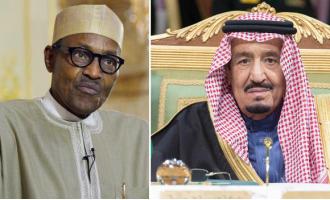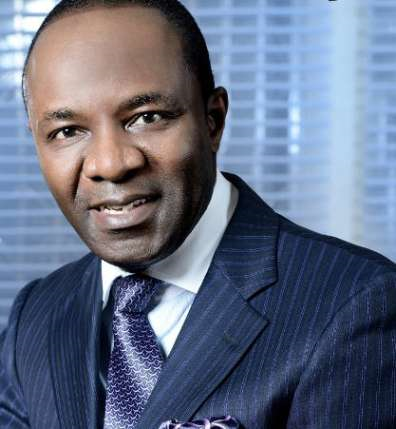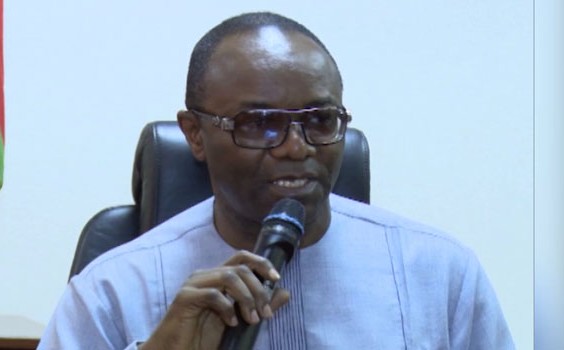Oil
NNPC may stop oil production if…. – Kachikwu

ABUJA-THE country may discontinue exploration of crude oil if prices of the commodity in the international market fall below the cost of production, the Group Managing Director, Nigerian National Petroleum Corporation, Dr. Ibe Kachikwu, has said.
Kachikwu said the government would simply leave oil in the ground if the cost of production per barrel exceeded the price in the international market.
He said as crude prices continued to tumble, oil companies were doing everything possible to curb their overhead spending, and “we in Nigeria must also adjust to reflect current market realities.”
The NNPC GMD, who spoke at the 2015 pre-conference workshop of the Nigerian Association of Petroleum Explorationists in Lagos on Monday, said, “If the cost per unit barrel exceeds the price of oil, it will simply be left in the ground.”
He spoke on the topic: ‘Survival strategies for petroleum exploration in a challenging environment’.
The oil price collapse, he noted, had given rise to a high level of uncertainty, which was being reflected in the companies’ balance sheets.
Kachikwu, who was represented by the Group General Manager, National Petroleum Investment Management Services, a subsidiary of the NNPC, Mr. Dafe Sejebor, said after years of relative price stability, investor confidence in the oil and gas sector had plummeted, adding that at the moment, there was little reason for confidence to return.
He said, “It is worth mentioning that many oil projects today are of such scale and global scope that their cancellation affects the economies, not only of the producing countries, but also those of many others that provide the goods, services, and expertise necessary to deliver those projects.
“Indeed, it is estimated that a $50 oil price placed $150bn of upstream investments at risk. Companies are exposed to these dynamics and the resulting changes in oil prices to different degrees.
“By optimising our financial position, reshaping our portfolios, renegotiating costs – both capital expenditure and operating expenditure – limiting costs, reducing risks, reengineering business models and addressing fiscal terms, companies can weather a lower-price environment and position themselves for even greater success when prices rebound.”
In his remarks, the President, NAPE, Mr. Chikwe Edoziem, said Nigeria’s crude oil reserves had been stagnant since the past five years at 37 billion barrels achieved in 2010.
The target of the Federal Government is 40 billion barrels by the year 2020.
With limited funding of Joint Venture operations, which is still the largest upstream arrangement in the industry, he said the target would be a mirage.
He said, “We are witnessing Nigeria’s crude oil reserves fast depleting because funding has been languid and concerted efforts have not been made to encourage exploration to meet our reserves’ replacement goals.
“The level of exploration drilling in Nigeria and the reserves replacement ratio is extremely low right now; and stakeholders recognise the need to replace production in Nigeria but they seem helpless in the face of the numerous but surmountable challenges facing the industry.”
Oil
NNPC Targets 60% Methane Emission Reduction By 2031
The Nigerian National Petroleum Company Limited (NNPC) has unveiled a bold strategy to reduce methane emissions in the oil and gas sector by 60% by 2031, with an ultimate goal of achieving net-zero emissions by 2060.
This announcement reinforces Nigeria’s leadership role under the Global Methane Pledge initiative and its commitment to tackling climate change.
The Group Chief Executive Officer of NNPC, Mele Kyari, disclosed these plans during a meeting on Thursday with Robert Leahman, the U.S. State Department’s Global Methane Program Manager, and a delegation from Deloitte.
READ MORE: Atiku Gloats Over AUN’s Achievements Ahead Of 20th Anniversary
The discussions, held at the NNPC Towers in Abuja, focused on collaborative efforts to reduce methane emissions through innovative and sustainable practices.
“Reducing methane emissions is not just an environmental necessity but also a strategic imperative for Nigeria’s energy transition. We are leveraging partnerships to adopt global best practices and innovative solutions,” Kyari stated.
Key among these efforts is a pilot project in the Niger Delta, aimed at establishing emissions baselines, mitigating methane leaks, and promoting sustainable operations across Nigeria’s energy sector.
The project, a partnership between NNPC, Deloitte, and the U.S. Bureau of Energy Resources, will utilize data-driven methodologies to pinpoint and address methane hotspots.
Robert Leahman commended Nigeria’s proactive stance, describing it as a benchmark for other nations on the continent.
“Nigeria’s leadership under the Global Methane Pledge sets a standard for the continent. These initiatives will not only help reduce emissions but also drive sustainable development in the energy sector,” he said.
Kyari highlighted the broader benefits of addressing methane emissions, noting its significance for both environmental protection and economic efficiency.
“This collaboration is a game-changer. By addressing methane leaks, we’re reducing waste, saving costs, and protecting the environment. It’s a win-win for our economy and the planet,” he added.
Oil
FG Introduces New Incentives To Revitalize Nigeria’s Oil & Gas Industry
In a strategic move to revitalize Nigeria’s oil and gas sector, the Federal Government has unveiled two key fiscal incentives aimed at attracting investment and enhancing energy security.
The announcement was made by Mr. Wale Edun, the Minister of Finance and Coordinating Minister of the Economy on Wednesday.
The first initiative, the Value Added Tax (VAT) Modification Order 2024, introduces critical exemptions for essential energy products and infrastructure, including Diesel, Feed Gas, Liquefied Petroleum Gas (LPG), Compressed Natural Gas (CNG), Electric Vehicles, Liquefied Natural Gas (LNG) infrastructure, and Clean Cooking Equipment.
Read Also: Atiku Calls For Rotational Presidency Across Nigeria’s Geopolitical Zones
These exemptions are designed to reduce living costs for Nigerians, promote energy security, and accelerate the transition to cleaner energy alternatives.
The second initiative, the Notice of Tax Incentives for Deep Offshore Oil & Gas Production, offers new tax relief options for deep offshore exploration projects.
This measure aims to position Nigeria’s deep offshore basin as a premier destination for international oil and gas investments, boosting the country’s appeal to foreign investors.
These reforms are part of a broader set of policy initiatives, known as Policy Directives 40-42, endorsed by President Bola Ahmed Tinubu.
The directives reflect the administration’s commitment to fostering sustainable development in the energy sector and enhancing Nigeria’s competitive edge in the global oil and gas market.
Business
Tinubu set to approve ExxonMobil-Seplat oil deal, expands CNG bus initiative

By Yemie Adeoye
NIGERIA’s President Bola Tinubu has announced that the protracted ExxonMobil-Seplat upstream oil divestment will be formally approved by the Minister of petroleum within a matter of days, just as he announced his government’s intention to expand the Compress natural Gas, CNG buses initiative.
The President who stated this during his Independence day nationwide broadcast stated that the move is in line with his administration’s commitment to free enterprise, free entry and free exit in investments which is the hallmark of his administration investment policy.
“Fellow compatriots, our administration is committed to free enterprise, free entry, and free exit in investments while maintaining the sanctity and efficacy of our regulatory processes. This principle guides the divestment transactions in our upstream petroleum sector, where we are committed to changing the fortune positively. As such, the ExxonMobil Seplat divestment will receive ministerial approval in a matter of days, having been concluded by the regulator, NUPRC, in line with the Petroleum Industry Act, PIA. This was done in the same manner as other qualified divestments approved in the sector.”
The President also seized the opportunity to plead with Nigerians to be patient with his administration’s reform policies. “As your President, I assure you that we are committed to finding sustainable solutions to alleviate the suffering of our citizens. Once again, I plead for your patience as the reforms we are implementing show positive signs, and we are beginning to see light at the end of the tunnel”.
“Our energy transition programme is on course. We are expanding the adoption of the Presidential Initiative on Compressed Natural Gas for mass transit with private sector players. The Federal Government is ready to assist the thirty-six States and FCT in acquiring CNG buses for cheaper public transportation.
Fellow Nigerians, while we are working to stabilise the economy and secure the country, we also seek to foster national unity and build social harmony and cohesion. Our economy can only thrive when there is peace”. he enthused.

















